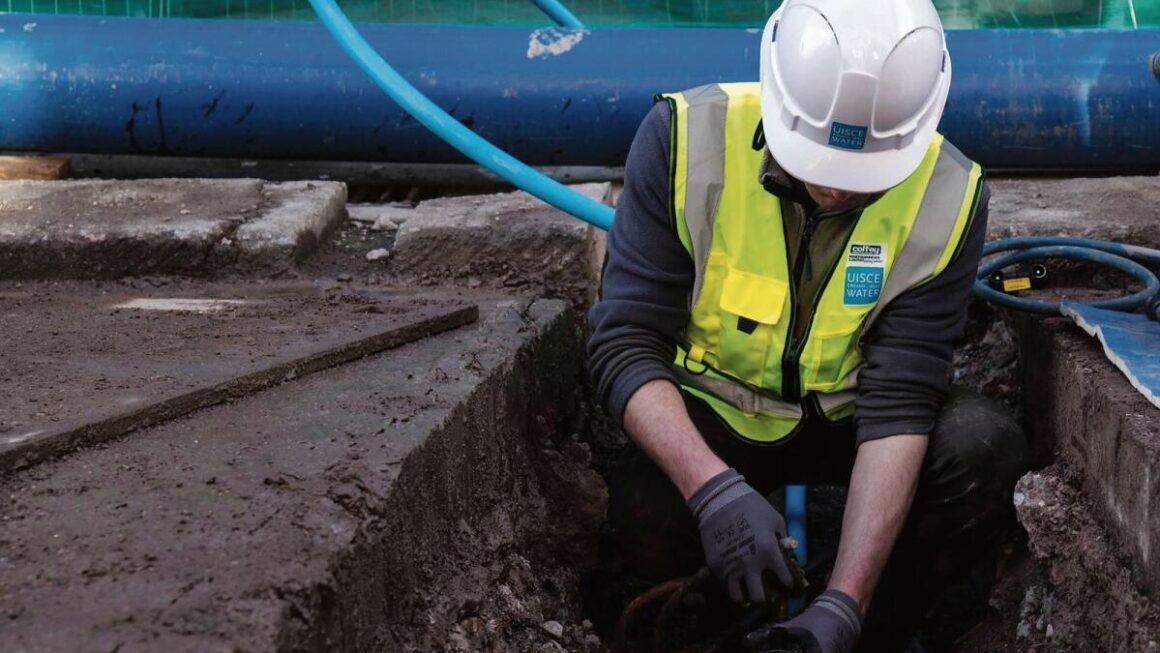By Mick Barry TD
A campaign to “Keep Water Public” was launched by the four trade unions with local authority water worker members (SIPTU, Unite, Connect and Forsa) at the end of October. The campaign is calling on the Government to name the date for a referendum to keep water in public ownership.
The Department of Housing, Local Government and Heritage has said that Minister Darragh O’Brien will bring forward proposals to Government early in the New Year. It is expected that a referendum on water may be held the same day as a referendum on a constitutional right to housing.
Growing pressure
The demand for a referendum to keep water in public ownership gained popularity in the middle of the last decade. A mass movement against water charges forced a Fine Gael-led government to abandon plans for a charge which would potentially open the door to the privatisation of Irish Water.
A bill aimed at forcing a referendum to keep water in public ownership was introduced by Joan Collins TD in 2016 only to be blocked by Fianna Fáil and Fine Gael for more than six years.
So, what’s changed now? First of all, the State is planning to transfer all its water assets to Irish Water (soon to be renamed Uisce Éireann) from 1 January 2023.
Local authority water workers will also be transferred over unless they opt not to, in which case they can remain on local authority payrolls until 2026. This decision has provoked a strong reaction from many rank-and-file water workers. Many are now saying that they won’t transfer over unless a date for a referendum is announced before the 1 January changeover date.
Gateway to privatisation
Rank and file water workers have pointed out that it is easier to privatise one entity (Irish Water/Uisce Éireann) than to private services in 31 separate local authorities.
The demand for trade union ballots on the issues that arise has also been raised with pickets recently placed on two trade union headquarters in Dublin. Unite is presently consulting their members as to whether they wish to ballot on the proposals.
Meanwhile, unofficial industrial action has been organised and many local authority water workers are refusing to work alongside private contractors hired by Irish Water. The action has put pressure on the four unions who in turn have increased pressure on the Government.
The Government, in turn, probably feels that a watered-down referendum wording may not overly restrict their room for neoliberal manoeuvre in future. They will have learned from the experience of the ESB that it’s possible to keep an entity formally in public ownership but to outsource work so extensively that the service is effectively privatised.
They also will know from the massive gas and electricity price increases imposed by Electric Ireland that it’s possible for an entity to remain in public ownership and to still introduce vicious anti-working class charges.
Wording of referendum
There are reports that there may be divisions between Fine Gael and Fianna Fáil on whether or not to hold a referendum. Government foot-dragging on naming a date must result in pressure from below which should only grow in the New Year if a date remains unset.
The focus will now turn to the date and the wording with socialists arguing for the strongest possible wording and the conservative parties most likely to argue for a much weaker formulation. It is important that the issue is not just debated in the Dáil but becomes a real talking point in society too.
Meanwhile, preparations must be made for fighting and winning a double referendum in 2023 on housing and water. An important part of any such referendum campaign would be to hammer home the point that the best guarantee against water privatisation and the inevitable water charges that would come with it is to be prepared to do what was done in 2014-16 and build a mass boycott and massive street protests.
Key, alongside this, is that preparations be made to strengthen the industrial organisation and power of the nation’s 3,000 water workers. These workers have tremendous potential power — the system simply cannot work without them — and represent a very important obstacle in the way of the privatisation agenda.











